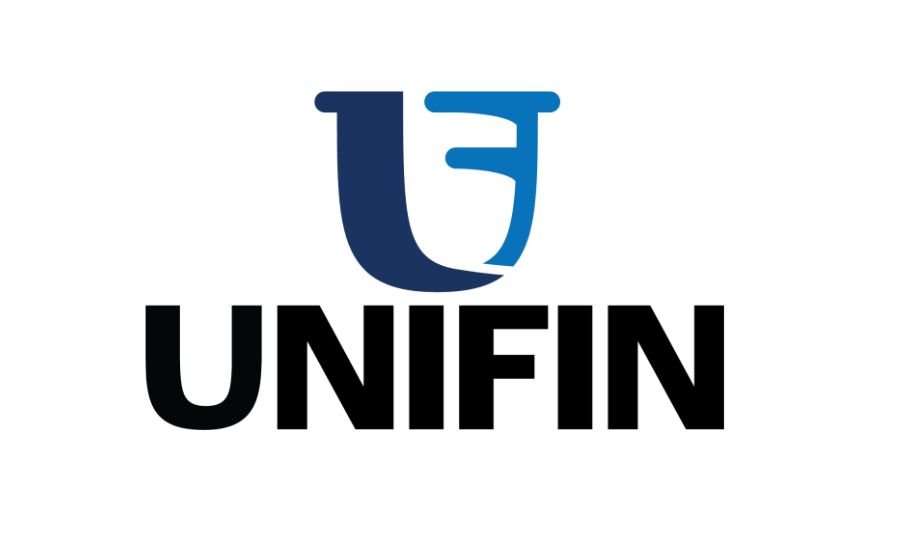Unifin Debt Collector Text: What It Is, Why You’re Receiving It, and How to Handle It

If you’ve recently received a text message from Unifin Debt Collector, you might feel confused or even worried. Who are they? Is the text legitimate? And most importantly, what should you do next? This guide will walk you through everything you need to know about Unifin, why they might be contacting you via text, and how to handle the situation effectively.
What Is Unifin Debt Collector?
Unifin is a third-party debt collection agency that helps companies recover unpaid debts. They work on behalf of creditors, such as banks, credit card companies, or other lenders, to collect payments from individuals who have overdue accounts.
While Unifin is a legitimate company, debt collection can often feel intimidating, especially when they start reaching out through text messages. Understanding their role can help you approach the situation calmly.
Why Are You Receiving Text Messages from Unifin?
If you’re getting messages from Unifin, it’s likely because:
- You Have an Outstanding Debt: This is the most common reason. A creditor may have hired Unifin to collect payments on their behalf.
- They’re Trying to Verify Your Information: Sometimes, collection agencies use texts to confirm contact details before proceeding with further communication.
- They’ve Purchased Your Debt: In some cases, Unifin might have bought the debt from your original creditor and is now seeking repayment.
- Error or Identity Theft: It’s possible that the message is a mistake or that someone else used your information to incur debt.
What Does a Typical Unifin Text Look Like?
Unifin debt collector texts usually include:
- A Friendly Greeting: Something like, “Hi [Your Name], we’re reaching out about an important matter.”
- Details About the Debt: They might mention the creditor’s name and the outstanding balance.
- A Call to Action: For example, “Please call us at [phone number] or visit [website link] to discuss your account.”
- Legal Disclaimers: Sometimes, they include notes about debt collection laws or your rights as a consumer.
Always review such messages carefully to ensure they’re genuine and not a scam.
How to Verify if the Text Is Legitimate
With scams on the rise, it’s essential to verify that the text is genuinely from Unifin. Here’s how:
- Check for Their Contact Details:
- Visit Unifin’s official website and cross-check the phone number or email address provided in the text.
- Avoid Clicking Links: Don’t click on any links unless you’re certain the message is legitimate.
- Contact Unifin Directly: Call their official customer service number to confirm whether they sent the message.
- Look for Red Flags: Grammatical errors, overly aggressive language, or requests for sensitive information (like your Social Security Number) can indicate a scam.
Your Rights Under Debt Collection Laws
Dealing with debt collectors can be stressful, but you have rights. Here’s what you should know:
Fair Debt Collection Practices Act (FDCPA)
- Debt collectors must treat you fairly and cannot harass or threaten you.
- They must provide written proof of the debt if you request it.
Telephone Consumer Protection Act (TCPA)
- Debt collectors can only contact you during certain hours (8 a.m. to 9 p.m.).
- They must obtain your consent to send automated text messages.
State-Specific Laws
- Some states have additional protections, such as limits on how often debt collectors can contact you.
If you believe Unifin is violating these laws, you can file a complaint with the Consumer Financial Protection Bureau (CFPB).
Steps to Take If You Receive a Text from Unifin
- Stay Calm and Don’t Ignore It: Ignoring the message won’t make the debt go away. Instead, take proactive steps to address the situation.
- Verify the Debt: Ask for a validation letter that confirms the amount owed, the original creditor, and other essential details.
- Know Your Financial Situation: Review your records to determine if the debt is legitimate. If it’s not, dispute it immediately.
- Respond Wisely: If you choose to reply, be cautious about what you share. Avoid giving out sensitive information until you’ve confirmed the sender’s identity.
- Consider Negotiating: If the debt is valid, you may be able to negotiate a payment plan or settlement.
What to Do If the Debt Is Not Yours
If you believe the debt isn’t yours, take these steps:
- Dispute the Debt in Writing: Send a dispute letter to Unifin within 30 days of their first contact. Include any evidence that supports your claim.
- Report Identity Theft: If you suspect fraud, file a report with the Federal Trade Commission (FTC) and place a fraud alert on your credit reports.
- Check Your Credit Report: Review your credit report for errors and report any inaccuracies to the credit bureaus.
- Consult an Attorney: If you’re facing persistent issues, a consumer protection attorney can help you resolve the matter.
Tips to Avoid Debt Collection Scams
Scammers often pose as legitimate debt collectors to trick people into making payments. Protect yourself by:
- Researching the Agency: Look up Unifin’s official website and contact details.
- Never Sending Money Without Verification: Confirm the debt’s legitimacy before making any payments.
- Requesting Proof of Debt: A real debt collector must provide documentation upon request.
- Staying Wary of Threats: Scammers often use aggressive tactics, but real debt collectors are required to follow legal guidelines.
Read More: FINBUSINES
How to Handle Unifin if You Can’t Pay the Debt
If you’re unable to pay the debt, consider these options:
- Negotiate a Settlement: Offer to pay a reduced amount in exchange for marking the debt as “settled” on your credit report.
- Seek Debt Counseling: Nonprofit organizations can help you create a repayment plan and manage your finances.
- File for Bankruptcy: This is a last resort but can eliminate most debts if you qualify.
The Impact of Debt Collection on Your Credit Score
When a debt goes to collections, it can significantly lower your credit score. Here’s what you should know:
- Debt Collections Stay for Seven Years: Even if you pay off the debt, the collection record remains on your credit report.
- Paying Off the Debt May Help: While it won’t remove the collection, it can show future lenders that you’ve resolved the issue.
- Disputing Errors Can Improve Your Score: If the debt is reported incorrectly, disputing it can lead to its removal from your credit report.
Preventing Future Debt Collection Issues
To avoid dealing with debt collectors like Unifin in the future, follow these tips:
- Track Your Finances: Regularly review your accounts to ensure you’re making timely payments.
- Communicate with Creditors: If you’re struggling financially, reach out to your creditors to discuss alternative payment arrangements.
- Check Your Credit Reports Annually: This can help you spot errors or fraudulent activity early.
Conclusion
Receiving a text from Unifin Debt Collector can be unsettling, but with the right approach, you can manage the situation confidently. Always verify the legitimacy of the message, understand your rights, and take proactive steps to resolve the issue. By staying informed and cautious, you can protect yourself from scams and work towards clearing any outstanding debts.
If you’re ever unsure about how to proceed, consult a financial advisor or legal expert for guidance. Remember, you’re not alone, and there are resources available to help you navigate debt collection challenges.
FAQs
Q: What is Unifin Debt Collector?
A: Unifin is a third-party agency that collects unpaid debts on behalf of creditors or purchases delinquent accounts for collection.
Q: Why did I get a text from Unifin?
A: You likely received the text because of an outstanding debt, to verify your contact details, or due to an error or identity theft.
Q: How do I verify if the text is from Unifin?
A: Check Unifin’s official website for contact details, avoid clicking links, and call their customer service to confirm the message’s legitimacy.
Q: Can Unifin send me texts legally?
A: Yes, but only with your prior consent, as required under the Telephone Consumer Protection Act (TCPA).
Q: What should I do if the debt isn’t mine?
A: Dispute the debt in writing within 30 days, check your credit report, and file an identity theft report if necessary.
Q: Will paying Unifin improve my credit score?
A: Paying the debt won’t remove the collection from your credit report, but it shows responsibility and may positively impact future lending decisions.
Q: How can I stop Unifin from contacting me?
A: Send a written request asking them to cease communication. However, this won’t erase the debt, and they may still take legal action to collect.
Check Out the Latest Blogs Regarding: 62-Aw-Cvk-Sapr-Under-Sieda-Jones






